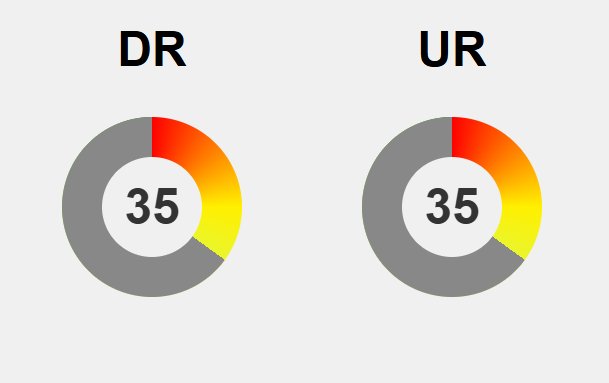Is intelligence solely dictated by DNA, or do environmental factors hold the true power? This exploration reveals that genetics contribute significantly to cognitive potential, shaping neural development and influencing traits like IQ and creativity. Twin studies highlight the genetic foundation, yet the environment—through education, nutrition, and social context—can unlock or restrict this innate capacity. The complex interplay between genes and surroundings suggests that intelligence isn’t fixed but fluid, capable of growth at any age. Advances in neuroscience, genetics, and AI are deepening our understanding, challenging outdated notions of innate talent. Could targeted interventions and nurturing environments help individuals surpass genetic predispositions? This perspective urges us to rethink education and societal support, emphasizing effort and resilience alongside biological factors. Ultimately, the question remains: How can we harness this knowledge to foster lifelong growth and equitable opportunities for all?
Unraveling the Age-Old Debate: Genes or Environment Shape Our Intelligence
The age-old debate about what shapes our intelligence—genes or environment—remains one of the most fascinating questions in human development. It’s a debate that touches on everything from education policies to personal self-belief. Are we born with a certain level of innate ability, or do our surroundings, experiences, and opportunities determine how far we can go? This question isn’t just academic; it influences how we nurture talent, support learning, and understand human potential.
Genes carry the biological instructions that form the foundation of our brains. They influence neural development, brain size, and neurotransmitter activity, all of which impact our cognitive capacities. Twin studies, especially those involving identical twins raised apart, show striking similarities in IQ scores despite different environments. Such findings suggest that genetics play a significant role in setting potential. But they don’t tell the full story—environmental factors can modify, enhance, or even hinder this potential.
On the other side, environmental influences—from quality education and nutrition to social interactions—shape how our genetic blueprint is expressed. Early childhood experiences, mental stimulation, and emotional support can unlock or limit our abilities. For example, a child with a genetic predisposition for high intelligence might not reach their full potential without access to enriching environments. Conversely, someone with fewer genetic advantages can still thrive when given the right opportunities and support.
The ongoing debate is nuanced. Most scientists agree it’s a combination: our genes set the stage, but our environment writes the play. The complex interaction between biology and experience makes human intelligence a dynamic, adaptable trait. Recognizing this interplay encourages us to focus not just on innate ability but also on creating nurturing, stimulating environments that foster growth at every stage of life.
The Genetic Blueprint: How DNA Determines Cognitive Potential
Scientific research has firmly established that our DNA carries a wealth of information influencing how our brains develop and operate. Genes contain the instructions for forming neural connections, determining brain size, and regulating neurotransmitter activity—all of which are fundamental to shaping our intelligence. Variations in specific genes can affect memory, reasoning, and processing speed, granting some individuals natural cognitive advantages from birth. These genetic factors create a biological baseline for potential, upon which environmental influences can build or hinder.
Twin studies offer some of the clearest evidence supporting a genetic role in intelligence. Identical twins raised apart often display remarkably similar IQ scores despite growing up in vastly different settings. This consistency underscores the significant influence of shared DNA. In contrast, fraternal twins tend to show more variation, reflecting their less similar genetic makeup. Such findings highlight that genetics play a substantial part in determining cognitive abilities, even as they leave room for environmental modulation.
Current genetic research suggests that hundreds of genes may be involved in shaping intelligence, each contributing a small effect. Large-scale studies, such as genome-wide association studies (GWAS), have identified numerous genetic markers linked to cognitive traits. Rather than a single “intelligence gene,” these findings point to a complex network of genetic influences working together. This complexity indicates that intelligence results from an intricate interplay of many genes, rather than a simple, singular genetic switch.
It’s crucial to understand that heritability estimates—often cited as between 50% and 80%—don’t imply intelligence is fixed or unchangeable. Instead, they reflect the proportion of variation within a population that can be attributed to genetic differences. In environments with high variability, genetics may explain less of the differences, while in more uniform settings, their influence appears greater. This nuance emphasizes that genes set the potential, but environmental factors determine how that potential is realized.
Genes also influence specific skills beyond general intelligence, such as language, problem-solving, or creativity. Variations can predispose individuals to excel in certain areas, but these tendencies are not deterministic. Environmental factors, education, and personal effort can significantly shape how genetic predispositions manifest, often enabling individuals to surpass their innate tendencies.
While genetic makeup establishes a vital foundation, it does not operate in isolation. Genes interact dynamically with environmental inputs—nutrition, learning opportunities, social experiences—that can reinforce or suppress genetic potentials. A child with a genetic predisposition for high intelligence still needs stimulating environments and proper support to reach that potential. Recognizing this interaction helps us appreciate intelligence as a fluid, adaptable trait shaped by both biology and experience.
Modern Science’s Multifaceted View: Exploring Intelligence Today
Modern science approaches understanding intelligence as a multidisciplinary puzzle, combining insights from genetics, neuroscience, psychology, and data science. Advanced brain imaging techniques like MRI and fMRI now allow researchers to observe which areas of the brain activate during different cognitive tasks. These images reveal that intelligence isn’t confined to a single brain region but involves complex networks working together, providing a more nuanced view of how we process information and adapt to new challenges.
On the genetic side, large-scale studies such as genome-wide association studies (GWAS) have identified numerous markers linked to cognitive traits. These findings show that intelligence results from many genes, each exerting a small effect, rather than a single “intelligence gene.” This complex genetic architecture underscores that intelligence is fluid and multifaceted, shaped by multiple biological influences that continually interact with environmental factors.
Psychologists have expanded their view of intelligence beyond traditional IQ tests. Today’s assessments include emotional intelligence, creativity, and social skills, recognizing that being smart isn’t just about reasoning. Traits like empathy, adaptability, and problem-solving are now integral to overall cognitive ability. Educational approaches reflect this broader understanding, emphasizing critical thinking, emotional awareness, and collaboration—skills essential for success in today’s interconnected world.
Emerging fields like artificial intelligence and machine learning are transforming research by analyzing vast datasets to uncover patterns in how genes, brain activity, and environment influence cognition. These technologies enable scientists to simulate neural processes and predict how different factors shape intelligence. As AI tools become more sophisticated, they offer new insights into neural plasticity and how specific experiences or genetic predispositions can modify brain function over time.
This integrated view of intelligence recognizes it as a dynamic system, not a fixed trait. It involves ongoing interactions between genetic makeup, brain structure, and environmental influences. This perspective moves us beyond simplistic models, emphasizing that human intelligence is adaptable and capable of growth through effort, learning, and resilience.
Research increasingly highlights the importance of environmental factors—nutrition, educational quality, social support—in shaping how genetic potential unfolds. Positive, stimulating environments can enhance cognitive development, while neglect or deprivation can limit it, regardless of genetic predispositions. This reinforces the idea that nurture and nature work hand in hand to shape our abilities.
Finally, advances in understanding brain plasticity reveal that neural connections can be strengthened and rebuilt at any age. Brain training, social-emotional learning, and targeted interventions can improve cognitive skills and emotional resilience. These findings affirm that growth isn’t limited by genetics, but is continually influenced by our experiences, environments, and efforts throughout life.
For those interested in exploring this topic further, learning about how to enhance cognitive abilities can be incredibly beneficial. Resources like brain training programs offer practical tools to support neural development and mental agility, emphasizing that growth and improvement are possible at any stage of life.
From Lab to Life: Applying Intelligence Research for Personal and Societal Growth
Understanding how scientific insights into intelligence translate into real-world actions can significantly influence personal growth and societal progress. Recognizing that skills like emotional intelligence, resilience, and creativity are just as vital as traditional cognitive abilities shifts the focus from innate talent to ongoing development. People can strengthen these traits through practices such as mindfulness, social-emotional learning, or engaging in challenging new activities. Developing emotional awareness and adaptability not only boosts personal confidence but also enhances relationships and problem-solving skills, making us more resilient in today’s fast-changing world.
For educators and policymakers, these research findings highlight the importance of creating inclusive, supportive learning environments. When schools and communities foster diverse forms of intelligence—academic, emotional, and social—they unlock the potential in every individual. Investing in early childhood programs, quality nutrition, and mental health resources becomes essential, as these elements directly influence cognitive and emotional development. By shifting the narrative from fixed ability to growth and effort, we can build more equitable opportunities, encouraging lifelong learning and curiosity in learners of all backgrounds.
Targeted cognitive training offers tangible benefits beyond test scores. Activities like problem-solving workshops, memory exercises, or creative challenges help build confidence and motivation. When combined with a growth mindset—the belief that effort leads to improvement—these practices inspire persistence and resilience. They reinforce the idea that intelligence is not static but can be cultivated through effort, experimentation, and perseverance, opening pathways for individuals to surpass perceived limitations and realize their full potential.
Environmental factors play a crucial role in shaping cognitive development. Stimulating surroundings filled with language, social interactions, and varied experiences can strengthen neural pathways and promote learning. Conversely, neglect, poor nutrition, or limited access to enriching activities can hinder growth regardless of genetic predispositions. Prioritizing nurturing environments, especially in early childhood, can bridge gaps and provide every child a fair chance to thrive. This understanding emphasizes that fostering curiosity, exploration, and resilience at every stage of life benefits both individuals and communities.
Supporting emotional intelligence is equally vital. Skills like empathy, self-awareness, and social skills often determine how well we navigate complex social landscapes and adapt to change. Programs that cultivate these abilities—through role-playing, feedback, or mindfulness—improve teamwork, leadership, and conflict resolution. In workplaces and communities, valuing emotional development alongside cognitive skills creates more harmonious, productive environments. Recognizing that growth in these areas is possible at any age encourages continuous self-improvement and lifelong learning, essential in a world that demands adaptability and empathy.
Charting the Future: New Horizons in Understanding and Enhancing Human Intelligence
Advances in understanding how genes and environment shape intelligence open exciting paths for both research and societal progress. While we’ve uncovered much about the genetic influences on cognitive potential, many details remain to be explored. Future studies focusing on how specific genes interact with environmental factors could lead to personalized educational strategies, tailoring support from early childhood to help individuals maximize their strengths. As science delves deeper into brain plasticity and resilience, we may develop targeted interventions that assist people in overcoming developmental challenges and optimizing learning at any age.
On a societal level, embracing the idea that intelligence results from a blend of inherited traits and life experiences encourages policymakers to prioritize equitable opportunities. Investing in high-quality education, nutritious food, and mental health resources can help close gaps caused by environmental disadvantages. Moving away from fixed notions of innate ability fosters a growth mindset culture, where effort and perseverance are valued above static talent. Such an approach makes it possible for more people to realize their full potential, regardless of their starting point.
The emerging field of epigenetics offers promising insights into how our experiences influence gene expression over time. Stress, nutrition, and social interactions can modify neural pathways, emphasizing that change remains possible throughout life. This understanding underscores that nurturing environments and healthy habits have lasting effects, reinforcing the importance of lifelong support systems that promote positive development. It also highlights the capacity for growth and adaptation, even in adulthood, challenging the idea that talent is predetermined.
Technologies like advanced brain imaging and artificial intelligence are transforming how we study cognition. These tools enable scientists to analyze vast datasets, observe real-time neural activity, and simulate the interactions between genes, brain functions, and experiences. Such innovations promise more precise assessments and personalized strategies for learning and mental health. They may help identify early signs of developmental issues and craft interventions that are both effective and tailored to individual needs.
As our scientific understanding deepens, ethical questions around privacy, fairness, and the potential for genetic modification become more urgent. Ensuring that these advances benefit everyone without widening inequalities will require responsible regulation and ongoing dialogue. Balancing innovation with ethical considerations is essential to harness the full potential of this knowledge for societal good, making sure that progress uplifts all segments of the population.
The ongoing exploration of how genetics and environment interact over a lifetime continues to reveal new layers of complexity. Research into early influences, neural adaptability, and social factors offers the promise of more effective strategies to support lifelong learning and resilience. This nuanced perspective encourages us to view intelligence not as fixed but as a dynamic trait, capable of growth through effort, support, and informed intervention.
Recognizing that intelligence is fluid and adaptable shifts the focus from innate talent to the importance of nurturing environments and personal effort. It inspires a future where education, community support, and individual determination work hand in hand, empowering everyone to reach their full potential. Embracing this balanced view fosters a culture of continuous growth, resilience, and hope—where talent isn’t just inherited but cultivated through a lifetime of opportunity and perseverance.




